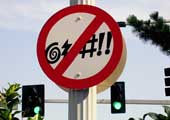Entry of my choice: Agree or Disagree?
The truest happiness, he[Napolean] said, lay in working hard and living frugally. (p.128)
I totally disagree with this quote. Yes, “working hard” is a good quality of a worker. Yes, “living frugally” is a good quality that a person should possess. Working hard to make a living is fantastic, but does doing so make you happy? Working hard can mean ten hours of non-stop telephone dealing, eight hours of cleaning, and even seven hours of garbage truck driving. Would these make you happy? I say no. Being thrifty with your money is good, but if you live frugally, you can’t always have what you want. For example, you want a new pair of jeans, but you instead decide to wear your five years old jeans one more year. Does this make you happy? Not getting what you want: is this your happiness? I don’t think so. In my opinion, just being with people you love is happiness.
I loved being with my grandpa. He was awesome to me. He’s smile was so relaxing and warm. I loved his old-time jokes. Oh, how he taught me how to ride a bicycle! I miss him so much. Unfortunately, he passed away. I thought that I couldn’t live without him. It was like part of me was missing. Just remembering of those times when I was with my grandpa, I could resemble every piece of my happiness with him. Another part of my happiness comes from my family. I can’t wait until I come home on weekends. My family members are so amazing to me. I wouldn’t feel my existence without them. When I come home, I am so happy that I get hyper.
For lovers, I guess your happiness comes from each other. Parents’ happiness from their sons and daughters and sons and daughters’ from their parents, I believe. What can be better than being with people you love?
The truest happiness, he[Napolean] said, lay in working hard and living frugally. (p.128)
I totally disagree with this quote. Yes, “working hard” is a good quality of a worker. Yes, “living frugally” is a good quality that a person should possess. Working hard to make a living is fantastic, but does doing so make you happy? Working hard can mean ten hours of non-stop telephone dealing, eight hours of cleaning, and even seven hours of garbage truck driving. Would these make you happy? I say no. Being thrifty with your money is good, but if you live frugally, you can’t always have what you want. For example, you want a new pair of jeans, but you instead decide to wear your five years old jeans one more year. Does this make you happy? Not getting what you want: is this your happiness? I don’t think so. In my opinion, just being with people you love is happiness.
I loved being with my grandpa. He was awesome to me. He’s smile was so relaxing and warm. I loved his old-time jokes. Oh, how he taught me how to ride a bicycle! I miss him so much. Unfortunately, he passed away. I thought that I couldn’t live without him. It was like part of me was missing. Just remembering of those times when I was with my grandpa, I could resemble every piece of my happiness with him. Another part of my happiness comes from my family. I can’t wait until I come home on weekends. My family members are so amazing to me. I wouldn’t feel my existence without them. When I come home, I am so happy that I get hyper.
For lovers, I guess your happiness comes from each other. Parents’ happiness from their sons and daughters and sons and daughters’ from their parents, I believe. What can be better than being with people you love?









